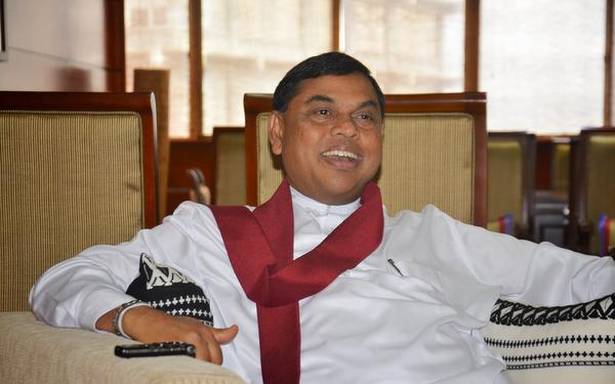The corona virus pandemic has battered the economy of the island nation which is dependent on tourism and tea exports
Sri Lanka is facing a severe foreign exchange crisis as the island nation, which depends heavily on tourism and tea exports, was battered by the coronavirus pandemic, Finance Minister Basil Rajapaksa has said.
He added that state coffers also suffered huge revenue losses due to the COVID-19 outbreak.
The Finance Minister told Parliament on Tuesday that Sri Lanka was facing a severe external crisis as well as a domestic crisis with revenues falling and expenses continuing to rise.
“Our country is facing a severe foreign exchange crisis”, he said, adding that data from the central bank shows the country’s net foreign exchange reserves are close to zero, which means almost all of its reserves are borrowed.
“Due to COVID-19, the government’s revenue for this year has fallen between 1500 and 1600 billion rupees from the estimated amount”, the younger brother of President Gotabaya Rajapaksa and Prime Minister Mahinda Rajapaksa, told the House.
The Sri Lankan economy suffered a heavy blow, as travel restrictions hit tourism.
Its GDP contracted by a record 3.6% in 2020 and its foreign exchange reserves plunged by over a half in one year through July to just $2.8 billion. This has led to a 9% depreciation of the Sri Lankan rupee against the dollar over the past one year, making imports more expensive.
The government faces accusations that it was printing money to keep interest rates low.
Mr. Rajapaksa said the revenues from customs had fallen sharply.
“The main source of government income has been from vehicle imports. We have banned importing vehicles for the past one and half years because of difficulties in finding foreign exchange. So the revenue from the customs dropped to a low level this year”.
He said the pandemic lockdowns caused reduced Excise Department and Value Added Tax from the Department of Inland Revenue.
“When there is a lockdown, the revenue from direct and indirect taxes reduced by 75%-80% on a daily basis. From the expenditure side, the government spending has increased because we did not cut any allowances or salaries of state sector employees”.
He said the government had paid for 80% of the COVID-19 vaccines so far, and that the external sector is “also facing a similar crisis”.
The drop in tourism revenue could be between $4 to 5 billion.
Despite receiving $800 million special drawing rights allocation from the International Monetary Fund (IMF), Mr. Rajapaksa did not say if the government would look for an IMF bailout.
He said the government would approach the World Bank and the Asian Development Bank (ADB) for support.
“The World Bank and Asian Development Bank have been particularly helpful, the government will continue to borrow from them.”
Source: Read Full Article

